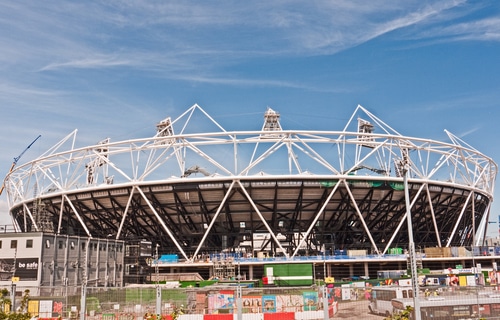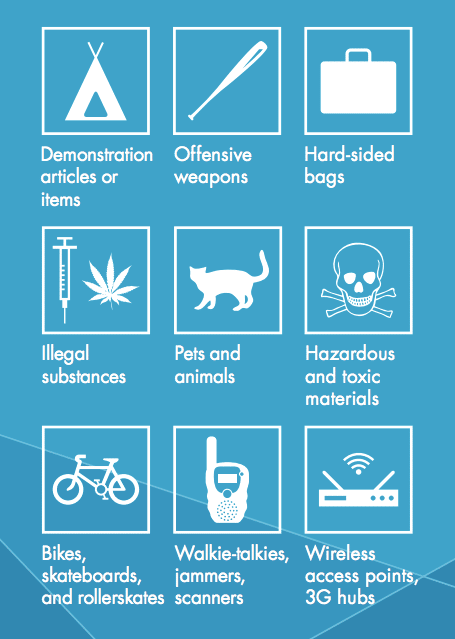
 Don’t take a gun, a knife, a vuvuzela or a wireless network to London 2012.
Don’t take a gun, a knife, a vuvuzela or a wireless network to London 2012.
WiFi and 3G base stations are on the list of items spectators are prohibited from taking in to Olympic venues. But BT will be charging attendees to access its own airspace…
According to the list:
“Personal/private wireless access points and 3G hubs (smart devices such as Android phones, iPhone and tablets are permitted inside venues, but must not be used as wireless access points to connect multiple devices).”
The London Organising Committee of the Olympic Games (LOCOG) hasn’t yet responded to our querying the reason for the ban.
Whilst, to some, it may seem silly, there is probably a perfectly logical explanation. Just as the London games’ organising committee has tried to have mobile phone carriers ensure quality coverage in and around Olympic venues, so, too, it wants to ensure crisp WiFi signals without interference.
But there may be another factor…
BT, as the “official communications services partner”, has won itself a deal to place 1,500 WiFi hotspots at Olympic venues, including 1,000 at the Olympic Park (300 in the main stadium) – what it’s calling “the largest single wi-fi venue installation in the UK”. That extends its total hotspot network to 500,000 in London and four million across the UK…
But all are paid hotspots, through BT WiFi (£5.99 for 90 minutes, £9.99 for 24 hours, £26.99 for five days), except for BT home customers and customers of mobile carriers which have sharing agreements with BT (O2 and Tesco Mobile). For anyone else, vouchers can be bought from kiosks at Olympic parks, BT told GigaOM.
BT is also servicing corporate Olympic WiFi users like journalists using separate networks.
Of course, spectators don’t need to be caught smuggling in their home Linksys or Netgear router to fall foul of the restriction. Many smartphones nowadays can create personal wireless hotspots on the fly to which surrounding devices can connect.
Does this mean London 2012 officials will refuse entry to people carrying iPhones or Android phones? No. Just like with its guidelines on social media use, this is intended to thwart people intent on disrupting on-site WiFi networks and ambush marketers, not individual spectators who want to use their phone during competition.
O2 COO Derek McManus wrote in November: “Wi-Fi will also play a huge role for those people who will want to use data services at the Games, including Facebook and Twitter.”
A BT spokesperson tells GigaOM: “The scale of the event means that we might see user data volumes equal to the whole of the BT WiFi network – all four million hotspots – so we’re making every effort to manage this and give Olympic Park spectators the best WiFi experience possible.”
